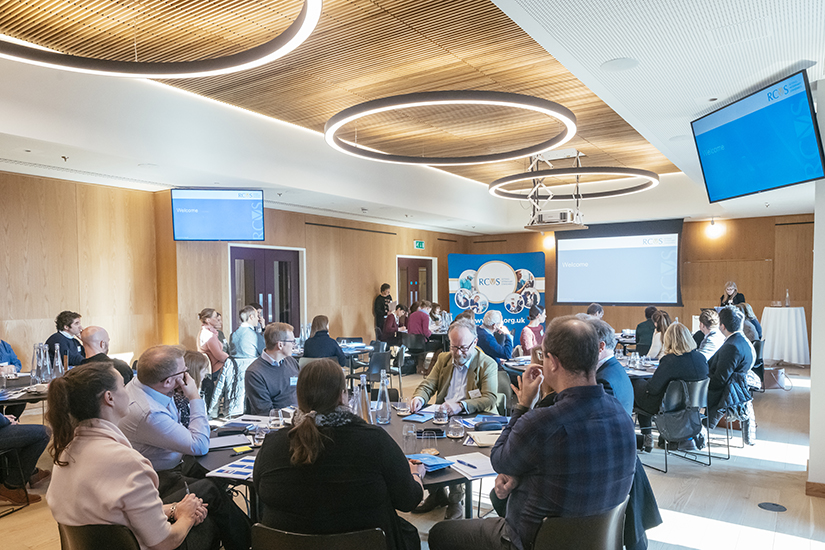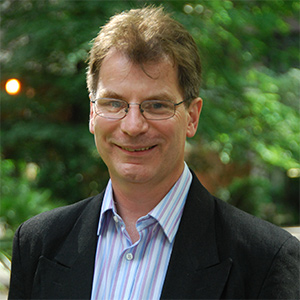Profession comes together to discuss clinical career pathways for vets
16 December 2022
Over 50 delegates from across the veterinary sector came together earlier this month to discuss how improvements could be made to the clinical career pathways available for veterinary surgeons and how to best communicate different veterinary roles and statuses to both the public and fellow veterinary professionals.
 The Exploring Clinical Career Pathways for the Future event took place at the Royal College of Surgeons on Wednesday 7 December in order to consider how to enhance and clarify career options for a range of veterinary surgeons, including Advanced Practitioners, general practitioners and Specialists.
The Exploring Clinical Career Pathways for the Future event took place at the Royal College of Surgeons on Wednesday 7 December in order to consider how to enhance and clarify career options for a range of veterinary surgeons, including Advanced Practitioners, general practitioners and Specialists.
The day was opened by RCVS President Dr Melissa Donald MRCVS who spoke about her own career as a primary care vet and stressed how important giving veterinary surgeons access to diverse and interesting career pathways was for job satisfaction and therefore retention within the professions.
Next, RCVS Director of Education, Dr Linda Prescott-Clements, spoke about the review of Advanced Practitioner status that had taken place in 2020. This review set out to assess perceptions of the status, why those who gained the status did so, how they worked towards the status and to explore the benefits and/or drawbacks of gaining the status.
Linda said that, overall, the review found there was a lack of understanding of what an ‘Advanced Practitioner’ is within the profession but especially amongst animal owners, and that this included confusion between the Advanced Practitioner status and the Certificate in Advanced Veterinary Practice (CertAVP).
Other findings were that younger members in particular were motivated to gain the status in order to further knowledge of a particular area of interest and be recognised for this, that achieving the status brought many personal benefits such as increased knowledge, standard of practice and self-esteem, but that the impact on individuals’ professional roles such as salary and the types of cases they saw was extremely variable.
Linda added that these findings were a key reason for organising the event, as it was clear that the Advanced Practitioner status needed to be better defined and clarified in order to improve understanding, and that, more generally, the College needed to explore future career pathways that were flexible and rewarding and could be accessed by vets of all types.
Next RCVS Junior Vice-President Dr Sue Paterson FRCVS gave a presentation on potential new career pathways that could be forged. Ideas cited included better systems for allowing vets in general practice to become ‘GP specialists’, including having a more modular approach to earning Specialist status for general practitioners and Advanced Practitioners. She said that these modules could be undertaken around work and personal life rather than the traditional residency programme route to Specialist status which were intensive and often poorly renumerated.
 Dr Kit Sturgess FRCVS (pictured), a former RCVS Council member who headed up an Advanced Practitioner Task and Finish Group set up to examine the results of the review, then presented an overview of some of the Group’s considerations and conclusions. He said that the Group had concluded that more needed to be done to make a clear differentiation between having a certificate in advanced veterinary practice and holding Advanced Practitioner status. In particular emphasising that Advanced Practitioners had earned their status not only through undertaking postgraduate qualifications (such as the CertAVP), but also by having significant hands-on practical experience of their area of interest via casework and undertaking enhanced level of CPD.
Dr Kit Sturgess FRCVS (pictured), a former RCVS Council member who headed up an Advanced Practitioner Task and Finish Group set up to examine the results of the review, then presented an overview of some of the Group’s considerations and conclusions. He said that the Group had concluded that more needed to be done to make a clear differentiation between having a certificate in advanced veterinary practice and holding Advanced Practitioner status. In particular emphasising that Advanced Practitioners had earned their status not only through undertaking postgraduate qualifications (such as the CertAVP), but also by having significant hands-on practical experience of their area of interest via casework and undertaking enhanced level of CPD.
Knowledge, skills and experience were felt to be key hallmarks of an Advanced Practitioner. Likewise, it was felt more could be done to promote and explain Advanced Practitioner status amongst both the profession – for example, through the Veterinary Graduate Development Programme and the RCVS Academy – and with animal owners.
The next speaker was Dr Helen Anderson, a registered nurse and Research Fellow at the University of York Trials Unit whose areas of research included professional identity and portfolio work amongst general medical practitioners in the human healthcare sector. Presenting her research on career pathways in the medical professions, she spoke about how the development of professional identity had both benefits in terms of self-esteem and solidarity, but also downsides in that it could make job roles more rigid and less accepting of branching out into other types of work.
Despite these barriers, she told delegates that ‘portfolio’ GP careers were becoming more popular and accepted amongst younger medical professionals due to the variety of responsibilities, being seen as a way of retaining more General Practitioners by allowing them to, for example, work in and alongside emergency departments, as well as branch out into education and leadership roles.
Following Dr Anderson’s presentation, the delegates were divided into groups to discuss and come up with suggestions for improving clinical career pathways based around four key themes. These were: developing names for veterinary roles which are clearly understood and recognised; recognition of career pathway roles by employers and public and its impact on work; accessible routes to specialisation; and, recognition of the general practitioner role and the value it brings.
The individual groups discussed proposals over the course of the afternoon before reconvening towards the end of the event to go over the potential ideas within each of the four topics. A full report of the day with the full range of suggestions will be published in due course, but ideas included: doing more to highlight and support the existence of the flexible, modular routes to Specialist status; further developing career pathways in general practice, improved information for the public about different statuses on the RCVS Find a Vet search tool; and public-facing promotional campaigns about the different veterinary statuses and what they mean.
 Linda Prescott-Clements (pictured) commented: “This was a really positive and forward-looking day of discussion and debate from people who very clearly held the subject matter close to their hearts and who wanted to improve the current situation for vets of all kinds and allow veterinary roles to be more clearly communicated with the public. A written report about the event will be published in due course and suggestions about a way forward will also be brought to the Education Committee in the new year. Thank you to all those who contributed to this event, and those who were not able to make it are still very welcome to submit their views by contacting us on [email protected]”
Linda Prescott-Clements (pictured) commented: “This was a really positive and forward-looking day of discussion and debate from people who very clearly held the subject matter close to their hearts and who wanted to improve the current situation for vets of all kinds and allow veterinary roles to be more clearly communicated with the public. A written report about the event will be published in due course and suggestions about a way forward will also be brought to the Education Committee in the new year. Thank you to all those who contributed to this event, and those who were not able to make it are still very welcome to submit their views by contacting us on [email protected]”
More information about Advanced Practitioner status can be found on its dedicated webpage.